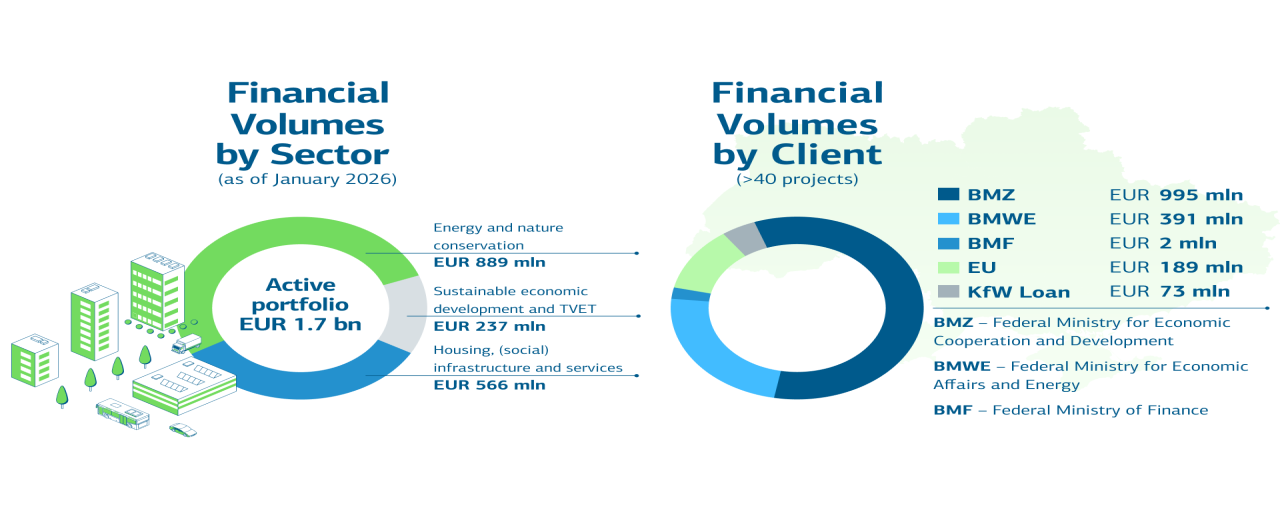Tip: Activate javascript to be able to use all functions of our website
For more than four years, Ukraine has been resolutely fighting against Russia’s war of aggression. The Ukrainians are tolerating immeasurable suffering, nightly rocket and drone attacks are a sad everyday reality in many cities. But while the war continues, life must go on: the economy must function, schools must remain open, and fields must be tilled. These aspects of life must remain intact if the daily needs for goods and services are to be met. At the same time, it is important to repair war damages quickly, modernise dilapidated infrastructure and to begin the process of reconstruction now. Whether it is power lines that have been destroyed by attacks or buildings that have been damaged, reconstruction cannot wait until the fighting is over. Instead, it must happen in parallel – in line with modernisation and reforms that are crucial for Ukraine’s way towards the EU. KfW is supporting the country precisely in this regard

Share page
To share the content of this page with your network, click on one of the icons below.
Note on data protection: When you share content, your personal data is transferred to the selected network.
Data protection
Alternatively, you can also copy the short link: https://www.kfw-entwicklungsbank.de/s/enzBzXsy
Copy link Link copied